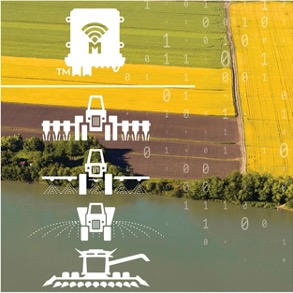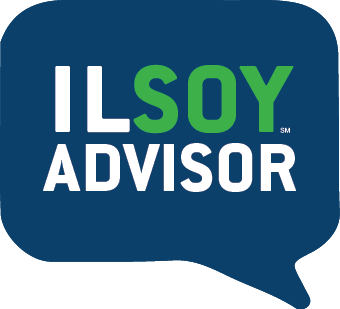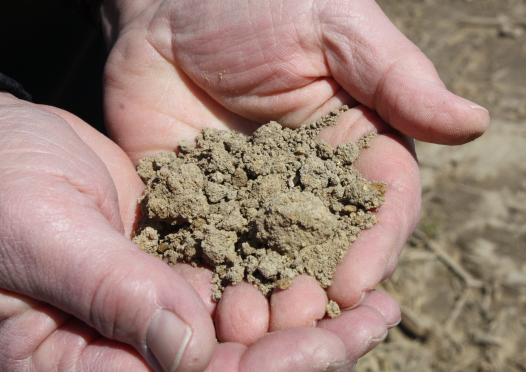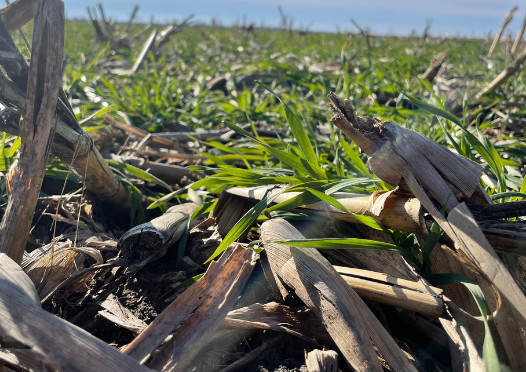ILSOYADVISOR POST
For carbon and ESG markets, one thing is clear—it takes a village
Contributed by Bradford Warner
Vice President of Sustainability & Business Development, Farmobile
The increasingly frenetic and frequent conversations around carbon markets, water quality, regenerative ag, and sustainability have spawned more questions than answers. What Farmobile can definitively say is that carbon credit and environmental, social and governance (ESG) markets are not going away.
A new market is popping up every week, every month. At the grower level, however, there are a lot of questions. Is this for me? What hoops will I have to jump through? What will I have to do to participate?
Perhaps most importantly, is this real? Is it going to be worth it?
ISA’s farmer-driven trial explores data gaps.
With its focus on economic sustainability, the Illinois Soybean Association (ISA) is always on the lookout for opportunities that benefit and best service the state’s farmers from Farm Profitability Education to Management Tools to assess impact.
ISA is focused on sustained profitability — not just of the Illinois soybean farmers, but of the entire supply chain.
"On-farm data management continues to evolve as new technologies have emerged. Product traceability, in-field management, and accurate input records have become valuable pieces of information and the use of data management for operational needs for improved farm efficiencies has proven to be profitable,” says Abigail Peterson, a Certified Crop Advisor and ISA’s director of agronomy. “The challenge, however, to document every equipment pass, chemical application, and the multitude of other practices is daunting — let alone trying to get all platforms to work together in a format that is precise and user-friendly.”
To address that challenge of gathering data for every field, this fall, ISA is conducting a three-month data trial in partnership with Farmobile. The trial, which is being conducted with the voluntary help of six ISA farmers (four of which are board members), is focused on discovering the agronomic data sets that can be automatically collected in-field and at-scale to help farmers create a digital record and more easily document and qualify for emerging markets.
“Farmers, who are participating in this trial, are helping to address what their data needs are and how this platform can work for them,” notes Peterson. “With future markets emerging, especially looking into farm management and product traceability, our goal is to ensure that the farmer is always in control and knows exactly how their information is used.”
According to Steve Cubbage, Farmobile’s vice president of data service, the first goal of the 90-day ISA harvest trial is focused on solving the data gaps for ESG markets. The second is to show farmers how real-time agronomic and machine data collection provides the control, visibility and 24/7 data access they need to tell their crop’s unique story — from harvest yield, fall fertility and cover crop to planting and more.
Data results, transparency and control matter.
To take advantage of emerging markets, sustainable opportunities, and R&D pilots and projects, farmers may need two-to-three years of data to prove practices and performance while making participation automatic and low-touch. Farmobile, an independent data-only technology from AGI (Ag Growth International), provides a real-time solution farmers need to extract this valuable data.
The Farmobile PUCTM device collects comprehensive, geospatial agronomic and machine sensor data from a mixed fleet of agricultural equipment and streams it to a cloud-based platform where it is organized as standardized, point-by-point raw data and aggregated into Electronic Field Records (EFRs) for each field activity. Raw data sets and EFRs are available to farmers for LIVE and historic viewing and 24/7 sharing, exporting or downloading for use in their farm management systems and software.
The trial is all about data results, transparency and control.
“Following harvest, we will evaluate what ISA farmers collected, listen to their experiences, and understand the gaps,” says Cubbage. “Moreover, we will report what worked and what didn’t”
Data control is also crucial. Participants in the ISA data trial, have control over and can immediately use the data they collect.
“Looking into new opportunities to increase farm profitability with valued management practices, it is important to keep a close watch on how information is shared and owned,” adds Peterson.
Does data matter? (I mean, really?)
Yes. ESG markets are knocking on farmers’ doors with great promise, but acquiring and sharing much of the data needed for participation is no small task.
In Farmobile’s pilot work, it has been discovered that many of the ESG markets operate on a number of assumptions, namely that farmers have “a good chunk” of the historical and cropping-level data readily available at the click of a button. That’s not true.
While program requirements vary, data on field activities — planting, spray/spread, harvest, tillage and cover crop — is almost always required in some form. The problem is, at farm-level that information is often incomplete, manual, resides in different formats, and sometimes exists with a farmer’s trusted advisor(s). For instance, the fertility and crop protection layers often reside with ag retailers. This is a problem, since fertility is a cornerstone of many ESG initiatives involving conservation, 4R and water quality.
In order to enter these markets in a meaningful way, it is crucial that farmers have a digital strategy in place that is automatic, low touch, and allows data to flow with ease across systems and software.
“Those farmers, who seek to take advantage, require the most complete data sets possible,” says Cubbage. “ISA is helping farmers know what to expect so they can be prepared and learn how to best set themselves up for future success.”

It takes a village.
Farmers need to have a working relationship with their trusted agronomic advisor and be able to move digital data flowing back and forth with ease.
As Farmobile’s founder, Jason Tatge likes to say, “Progress moves at the speed of trust.”
To make these markets and new initiatives work for farmers, it requires trust and industry collaboration.
“Ag retailers and trusted-advisors play a vital role,” says Cubbage. “Ultimately, farmers will want digital documentation of the as-applied field activity layers. That’s the great thing about this technology, it benefits ag retailers, too. Data collection works on a mixed fleet of commercial applicators and tender trucks. That means they can collect and share field-specific application data with their farmers. So, it’s a win-win for everyone.”
The end result? If we want farmers to win in these markets, it is going to take a village.





Comments
Add new comment